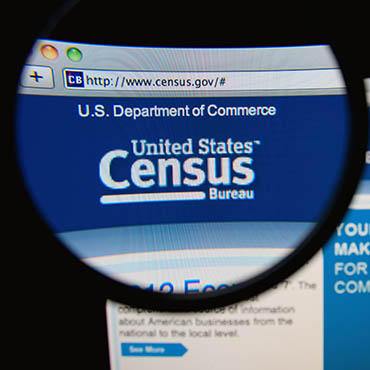Census delays IT contracts, plays catchup on systems
At a quarterly meeting, Census announced it has delayed two key IT contracts, but following a requested funding increase, is catching up on IT systems development.

The Census Bureau announced on Oct. 27 that it has delayed two key IT contracts, but following a requested $3.3 billion funding increase, is catching up on IT systems development and critical communications efforts.
Over the past year, Census has cancelled important in-field tests, delayed IT contracts and government watchdogs have repeatedly raised concerns about Census's systems readiness.
Although the government is operating under a continuing resolution, Al Fontenot, assistant director of decennial census programs directorate, noted the bureau had been granted an "anomaly," which allows for increased spending velocity through Dec. 8 under the $800 million proposed for the bureau's decennial programs in fiscal year 2018 by the White House.
"This anomaly was granted to enable [the bureau] to stay on course for the 2018 end-to-end peak operations, and to make the purchases to enable to us to build out 2020 field infrastructure," he said a quarterly meeting.
Commerce Secretary Wilbur Ross recently requested an additional $187 million for Census in fiscal year 2018 — plus $50 million more for contingency costs — as part of a $3.3 billion increase through 2020. The anomaly allows the bureau spending flexibility while Congress considers Ross's request, but future funding is contingent on a funding package's passage by the expiration of the continuing resolution on Dec. 9.
Ross is set to testify Oct. 31 before the Senate Homeland Security and Government Affairs Committee about cost overruns and information security issues associated with the 2020 Census.
The bureau also is considering what to do about the successful protest by AT&T of the $283-million decennial device-as-a-service contract, awarded to CDW-G in July.
Fontenot said the bureau is still "examining our options," including accepting GAO's ruling and re-bidding the contract, or rejecting it and risking the possibility of a lawsuit from AT&T in the Court of Federal Claims.
"If we are unable to resolve the situation quickly," Fontenot added, "we have a contingency plan in place to ensure that we have devices available to use in the 2018 end-to-end test."
All aspects of the Census Enterprise Data Collection and Processing program, which will centralize data collection for all census activity for the first time, "are on track to deliver on time" for the 2018 test and the 2020 main event, said program manager Patricia McGuire.
After announcing in Sept. the bureau expected to award its field IT contract in February or March 2018, Fontenot amended the estimate for single contract to provide IT equipment, logistics services, maintenance and support for regional census centers, area census offices, paper data capture centers and remote workers through 2020 to May or June 2018. Additionally, the single contract for fingerprinting and badging operations through 2020 will now be awarded later in October or in early November, Fontenot said.
GAO also has expressed concerns about Census's IT systems readiness. By its count in August, GAO found that only four of the 43 systems to be deployed in the 2018 dress rehearsal had completed development and testing. Of the remaining 39, GAO found 18 had no functionality deployed, and that all 43 lacked authorizations to operate.
Atri Kalluri, chief of the bureau's Decennial Information Technology Division, said that to date, 23 systems have received ATOs and been tested, deployed and successfully used during the address canvassing portion of the 2018 test, and a 24th is being used.
"It may be a timing or an interpretation issue that led to this discrepancy," he said, adding, "The 2018 census test is the last opportunity to test the established processes and procedures before we switch gears and get ready for the 2020 Census."





